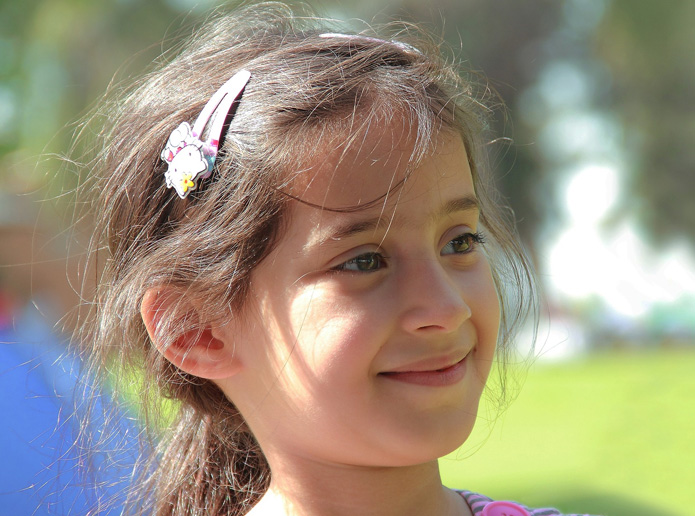There are many things that your preschooler will enjoy doing. There are also many ways in which they need your encouragement and guidance to help them develop and grow.
I like to repeat activities to learn, practice and master new skills.
Help your child practice the things they are learning, like catching a ball, counting, singing a song, doing simple household activities to help, or repeating an activity from kindy. Focus on what they can do, not what they can’t or shouldn’t do.
You can encourage and guide by saying “You are a great jumper – do it on the trampoline, not the lounge” or “You can practice climbing ladders when we get to the park after lunch. Chairs are not for climbing”.
Consider giving children extra time. For example, allowing extra time to get ready so you are in the car on time.
I need help to see another’s perspective.
Guide your child and show understanding. Say things like “I know you want to go to the park now, but I need to drop Dad at work and John at school first. They will get into trouble if they are late.”
Or “When you draw in your brother’s school books, he gets upset”, or “When you throw the toy at Jane, it hurts her and makes her cry.”
I want to be in charge.
You can help by saying “I know you like this game, but others would like to have a go too. How do we make sure that everyone gets to have a turn?”
I will repeat behaviours to get a predictable response.
You might respond by saying “That behaviour is not acceptable. You need to (x) or I will (y)”.
You can give three warnings to children who have shown that they are developmentally ready to comprehend this (i.e. they have finished playing the ‘Why?’ game).
I like using my power, strength and speed.
Praise your child when they are being responsible, such as “Look at how you packed things away without me asking you”.
Make opportunities to use their skills: “I wonder if we can make a game of who can pack away their bit the fastest”, or “Can you help me lift your play table over there?”
I like to use the things you use.
Explain the difference between a toy, a tool and a decoration. For example: “Let me show you how to use this tool safely. You can only use this with me around, okay?”
Find parts of a task that children can help with, such as mixing the flour and milk when baking.
I will copy how you relate to others.
Role model positive behaviour. Take care to be respectful in the way you relate to other adults and children. Avoid negative words when describing others.
I use body language to get power over others.
You can help your child learn by saying “Pushing/hitting means you cannot play” and removing them from the situation.
Suggest ways your child can be part of things: “How about you ask if you can join in or tell them how they can join in your game.”
I like to play cooperative games with roles or rules.
You can help by asking “What are you playing? What are the rules?”
Play board games or simple ball games in the park and explain the rules.
I like to feel I can contribute in the family.
Involve your child in doing chores and things around the house. You can say things like: “This will help our house look great”, or “We need to eat soon, can you help me cook?”, or “Dinner is ready, can you help set the table?”
I am learning about deception, and omitting or stretching the truth.
You can guide your child by responding with things like “I don’t know that is true or the whole truth. If I checked would it be true? Would [name] say that too?”
I like to know why.
Explain things when reasons are clear. For example, “You need your shoes on so your feet don’t get sore”, or “The doctor doesn’t have much time so we get them to write our name next to a time for us to see him”.
Encourage your child to think about reasons why for themselves. Questions like: “Who could we ask?”, “Where could we find out?”, “I’m not sure …..I wonder why?”, or ”Can you think of why that might be?”
If you still have questions, contact our Parenting Line
